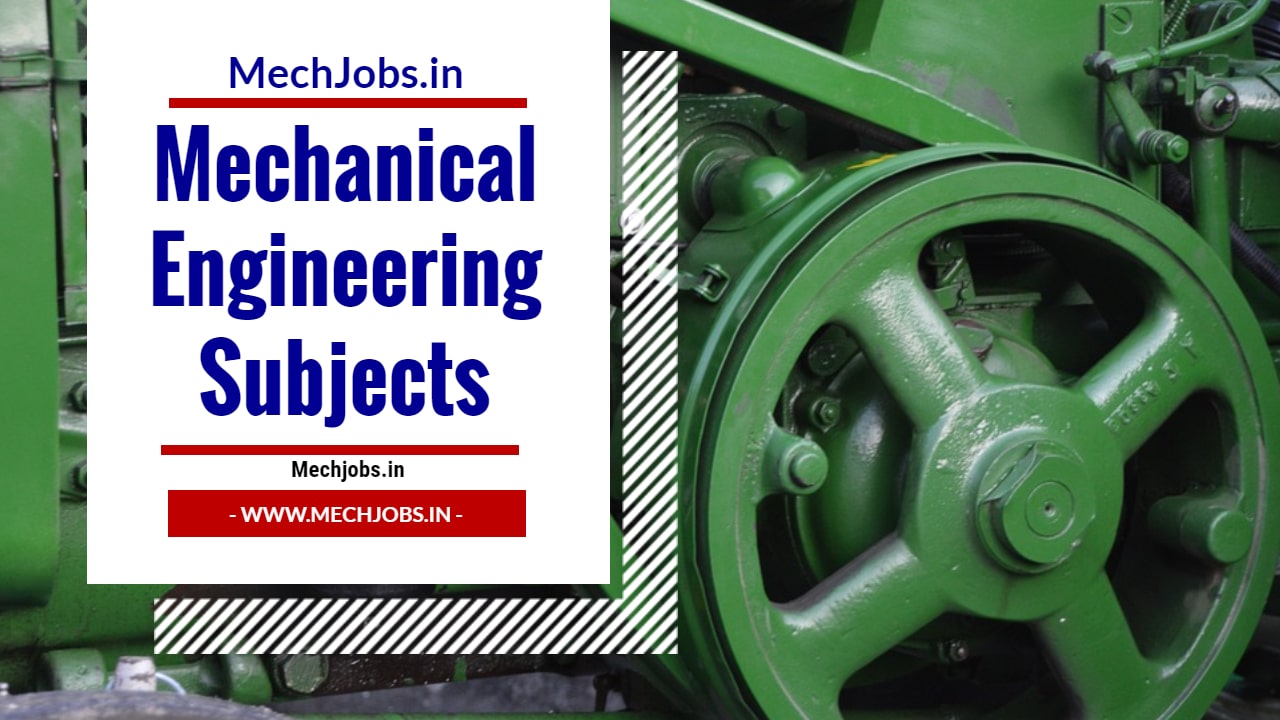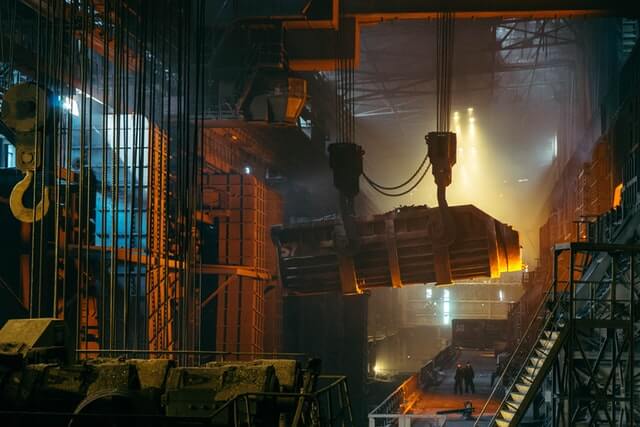
The duration of the Mechanical engineering course (BE or B Tech) is 4 Years. These 4 years are further divided into 8 semesters and in each semester, 5 to 6 theory subjects and 2 – 3 practical subjects are covered. Overall, a Mechanical Engineer studies more than 55 subjects in their 4-year college tenure.
The first year i.e. the first two semesters is common for all Engineering branches. Thereafter, from the second year i.e. 3rd semester, onwards each branch teaches their specialized subjects to their students. For example, the Mechanical Engineering students will study their mechanical related subjects and other branches such as computer science students will study computer-related subjects and so on.

Subjects, which are mostly covered during the first year i.e. 1st semester and 2nd semester (common year), are as follows;
- Mathematics (M1 & M2)
- Engineering Physics
- Engineering Chemistry
- Engineering Drawing
- Computer science
- Electrical Science
- Engineering Mechanics
- Chemistry Laboratory
- Workshop Laboratory
- Physics Laboratory
- Computing Laboratory
From the 2nd year (3rd semester) onwards, the following subjects are covered;
- Mathematics (MIII & MIV)
- Thermodynamics (Basic & Applied)
- Solid Mechanics
- Engineering Materials
- Machine Drawing
- Fluid Mechanics
- Manufacturing Technology
- Kinematics of Machinery
- Dynamics of Machinery
- Design of Machine Elements

- Electrical Machines
- Machine Design
- Mechanical Measurements
- Heat and Mass Transfer
- Control Systems
- Mechatronics
- Engineering Work Shop Practice
- Production Technology

- Power Plant Engineering
- Managerial Economics and Financial Analysis
- Automobile Engineering
- Machine Tools
- Heat Transfer
- Industrial Management
- CAD/CAM
- Metrology and Surface Engineering
- Refrigeration and Air Conditioning
- Operations Research
- Database Management Systems
- Finite Element Methods
- Instrumentation and Control Systems
- Robotics
- Probability and Statistics
- Fluid Mechanics and Hydraulic Machinery
- Environmental Studies
- Computational Fluid Dynamics
- Advanced-Data Structures and Algorithms
- Unconventional Machining Processes
- Nonconventional Sources of Energy
- Production Planning and Control
- Nanotechnology
- Computer Organization and Architecture
- Automation in Manufacturing
- Interactive Computer Graphics
- Operating System Concepts
- Metallurgy and Materials Science
- Production Technology Lab
- Mechanics of Solids and Metallurgy Lab
- Object-Oriented Programming Lab
- Fluid Mechanics and Hydraulic Machinery Lab
- Thermal Engineering Lab
- Metrology and Machine Tools Lab
- Advanced English Communication Skills Lab
- Heat Transfer Lab
- Production Drawing Practice and Instrumentation Lab
- CAD/CAM Lab
- Industry Oriented Mini Project
- Seminar
- Project Work

The above subjects are mostly covered in many universities. However, subjects, syllabus, and exam patterns vary from university to university.
After the successful completion of these courses, a degree certificate is awarded. Either BE i.e. Bachelor of Engineering or B Tech i.e. Bachelor of Technology degree is awarded. BE and B Tech degrees are considered equivalent.
Many times people ask the difference between BE and B Tech. These two terms are equivalent. However, In B Tech number of practical papers may be more than the BE. However, that never affects anything.
The only thing that needs to be taken care of is the affiliation of the college. The college must be affiliated by a valid university and must be recognized by the AICTE.
Most of the universities give lateral entry directly to the second year to diploma Engineers (in some universities they are given lateral entry to even the third year also). Hence, if you are a diploma Engineer willing to do BE or B Tech you can save your time and money.
A diploma Engineer has the choice to pursue BE or B Tech through correspondence course along with their job. In that case, they are required to attend the practical’s/Lab sessions only. However, you need to be careful while choosing such colleges/universities. The first and foremost requirement for any college/university is AICTE recognition. If the college is recognized by AICTE then only enroll for such courses.
I hope this article will be useful for many aspirants. Please give your valuable suggestions/feedback.



Recent Comments